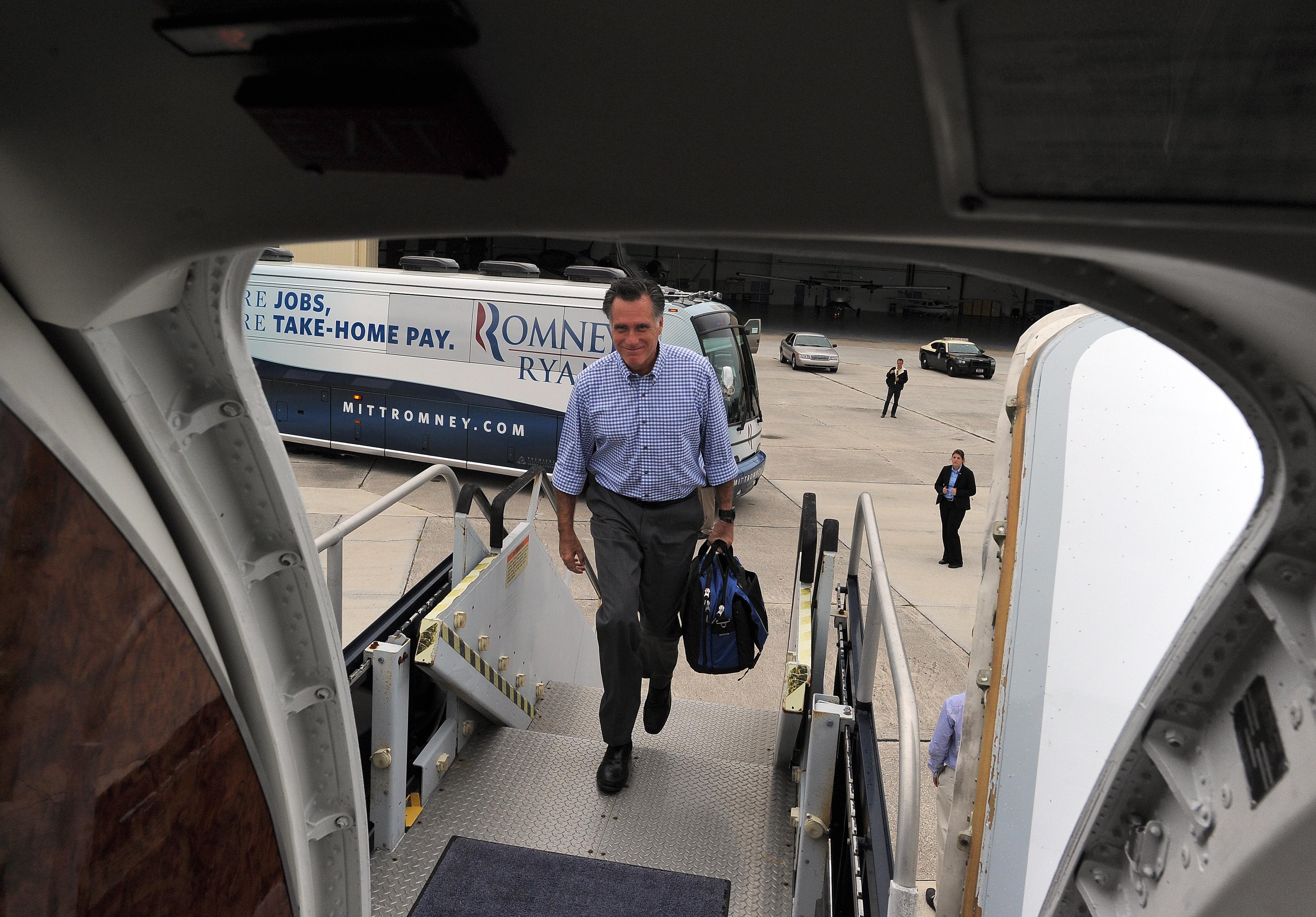Mitt Romney delivered his latest attack on President Obama’s foreign policy on Monday and told an audience of Virginia Military Institute cadets that the president has failed to show the resolve needed to stabilize the Mideast and help protect American interests in the region and at home.
“The president hopes for a safer, freer, and a more prosperous Middle East allied with the United States,” the GOP challenger said in what was billed by his camp as a major foreign policy speech. “I share this hope. But hope is not a strategy. We cannot support our friends and defeat our enemies in the Middle East when our words are not backed up by deeds.”
Here’s the Washington Post on Romney’s newfound foreign policy confidence:
Romney spoke in confident and crisp tones, perhaps reflecting the intensive preparation aides said he had engaged in for the speech. Gone was the hurried demeanor he had displayed at a rally just the night before in Florida, where he rushed through his remarks as rain threatened from a gray sky.
The former CEO, in his comfort zone when focused on the economy, has stumbled during his occasional forays into foreign policy. He offended his British hosts and Palestinian leaders during an overseas trip in July, failed to mention Afghanistan in his acceptance speech at the Republican National Convention, and was roundly criticized for the timing of his assault on President Obama’s handling of violence in Libya.
But with the president now potentially vulnerable on issues such as Libya and U.S.-Israeli relations, the Romney campaign senses an opportunity to reshape an issue long seen as an Obama strength.
You can read Romney’s prepared remarks in full here. Here are a few noteworthy snippets. On Israel and Palestine:
I will recommit America to the goal of a democratic, prosperous Palestinian state living side by side in peace and security with the Jewish state of Israel. On this vital issue, the president has failed, and what should be a negotiation process has devolved into a series of heated disputes at the United Nations. In this old conflict, as in every challenge we face in the Middle East, only a new president will bring the chance to begin anew.
On Syria:
I will work with our partners to identify and organize those members of the opposition who share our values and ensure they obtain the arms they need to defeat Assad’s tanks, helicopters, and fighter jets. Iran is sending arms to Assad because they know his downfall would be a strategic defeat for them. We should be working no less vigorously with our international partners to support the many Syrians who would deliver that defeat to Iran—rather than sitting on the sidelines. It is essential that we develop influence with those forces in Syria that will one day lead a country that sits at the heart of the Middle East.
Egypt:
I will use our influence—including clear conditions on our aid—to urge the new government to represent all Egyptians, to build democratic institutions, and to maintain its peace treaty with Israel. And we must persuade our friends and allies to place similar stipulations on their aid.
And Iraq:
[T]he costly gains made by our troops are being eroded by rising violence, a resurgent al-Qaida, the weakening of democracy in Baghdad, and the rising influence of Iran. And yet, America’s ability to influence events for the better in Iraq has been undermined by the abrupt withdrawal of our entire troop presence. The president tried—and failed—to secure a responsible and gradual drawdown that would have better secured our gains.
